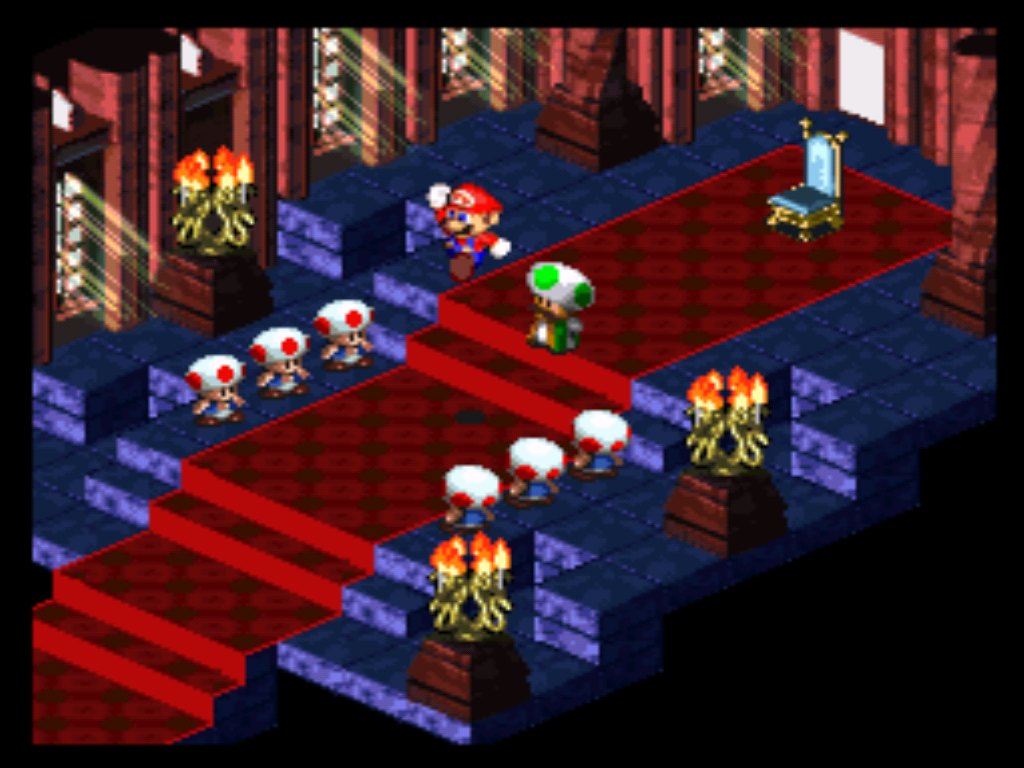
I played a lot more video games when I was a kid than I do now. Partly because I’m a grown-up Middlebury student with no time on my hands (because that’s what we do here) but also partly because little nine-year-old me had a penchant for playing shitty games and I don’t. I played a lot of bad games; terrible games with terrible music– like certain racing games, for instance. Would little me even recognize a a good dame amidst all of the steaming piles of dog excrement? Did little me even know what good music was?
If it’s one thing I’ve kind of always been– it’s a music nerd. Harmonies get me giddy, and good melodies are worth their weight in sex. I think a lot of gamers out there have come to the realization that the soundtrack of a game is almost too important for words to accurately describe, so I’m not going to make myself look like anything truly special here– but seriously, why is that? Ask anyone what their favorite game is, and I bet you they’ll remark in some form about the impact that the music had on them. Or rather, nobody’s favorite game has bad music, let’s put in that way. I will say that music was particularly close to me for awhile because I played classical piano for nine years– and yeah, while I am kind of bragging about that right now, I’m also bringing it up because I’m going to prove a point with it somehow. I was a good pianist insomuch that I was good at performing the song; it was never truly hard for me to connect to the piece that I was playing in an emotional way, I suppose– but I was pretty freaking bad at actually learning songs, plucking through notes, and every other technical component of playing that involved being a musician with good technique.
I’m only bringing this up to selfishly emphasize how close music was to me for a time, but I will say that it shaped my tastes somewhat. Good video game music wasn’t just good because it was catchy, but because it was cleverly written. I think the first time I ever played a game and I was like, “yeah, this music!” was Super Mario RPG (which, as you guys know, goes wayyyy back for me).The game was a bit of a risky venture for both companies at the time– licensed by Nintendo and yet, developed by Square. This was like, the Kingdom Hearts of my childhood– these two groups could not have been more distinct from each other in terms of the types of games that they were known for. And yet, each side brought its own blend of personality that made it satisfying, somehow. So then, how would you create the music for such a weird, genre-bending game? Which themes do you pay homage to, and which ones do you exclude? In fact, should you emphasize previously established leitmotifs at all, or should you just make new ones?

The answer is subtle, but the answer is yes. Somehow, the composer found a completely happy medium that served the purposes of the world they were creating, and was fucking visited by angels of music, basically, because this music is divinely inspired, is what I’m getting at. There’s just the right mix of everything, and I don’t know how she did that. Plus, she just kind of fucked around with things and got away with it. The music for the game’s final dungeon (final stage?) is written in 13/8ths– meaning, 13 eighth-notes to a measure. Try counting that shit out, kids. Like, who does that? The boss music in the game is fantastic, and it turned out that the right amount of Final Fantasy involvement was a hats-off to the game’s optional mega-boss, Culex– featuring classic final fantasy music, no less. Seriously, this game is fucking stellar and helped introduce me to good music, guys.
And being a lover of subtle things, I’m so impressed by games that can seemingly capture the entire fucking tone of a game in one melody and make it look easy. Tonal synchronicity is hard, guys– because it means that the composer has to be on the same page with the team to adequately express the theme of the game, and if recent flub-ups have shown us anything, it’s that game development is a huge messy process with tons of little work being done to it by many, many talented people. How do you derive a theme from that? Like, how is it done? We’re led to believe that this process is effortless, but it’s so fucking not. Which is why I’m always impressed with there’s synchronicity there. Was the music finished before development? Is it done after? To what degree to they inform each other? There’s some obvious one’s on this list, but I’m thinking of the Whispering Rock theme from Psychonauts, which is just so well-done and captures the quirky feeling of a summer camp to me. Or like, the River Belle Path theme from Final Fantasy: Crystal Chronicles, which perfectly grasps the slower-paced feel of the game (actually, this soundtrack is one of my favorites to listen to while I’m programming because it’s just so musically gorgeous). I sometimes consider trying my hand at music composition, so it’s games like these that will always serve as an inspiration to me.
